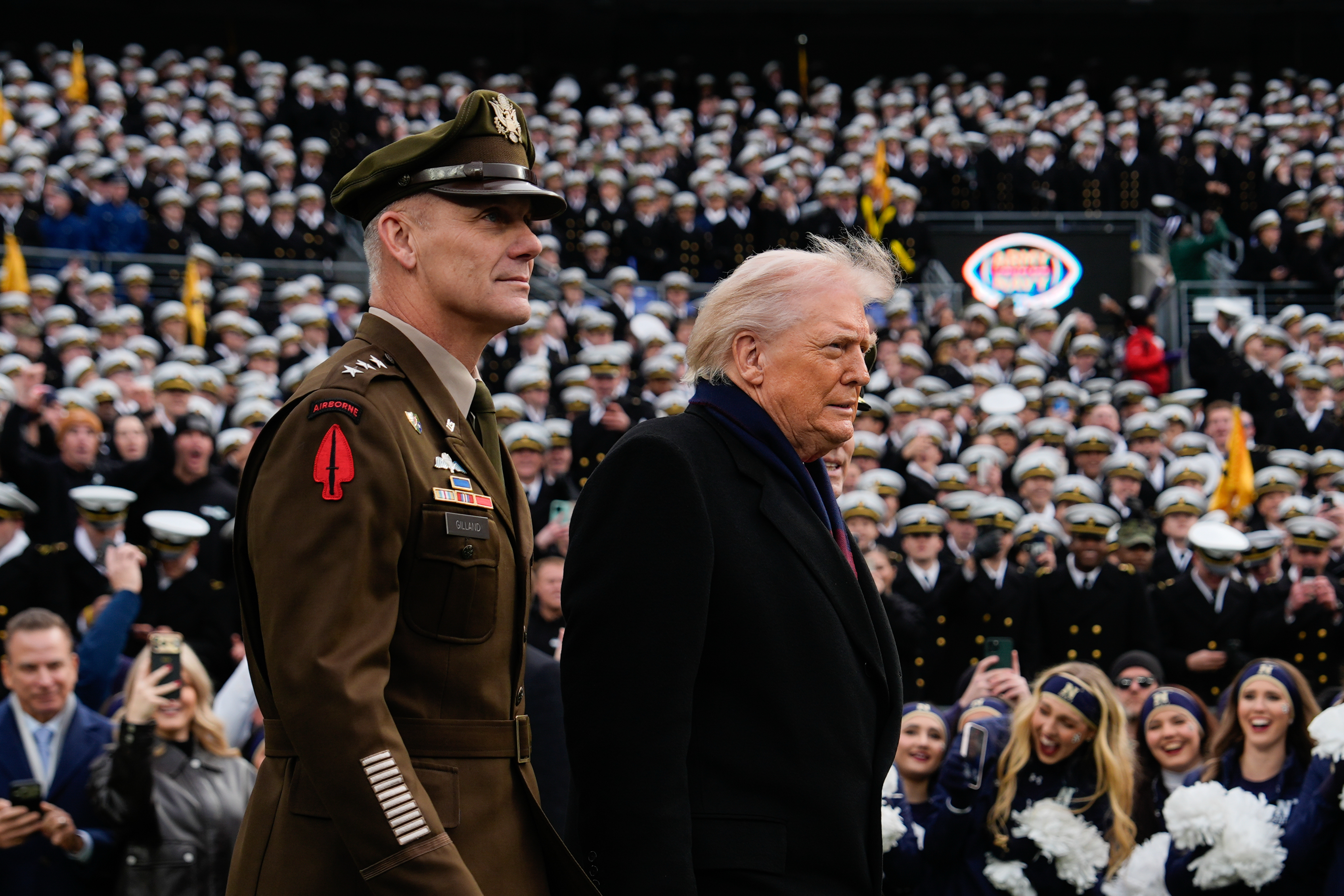Russia concentrated attacks in its increasingly troubled invasion of Ukraine on areas it illegally annexed as the death toll from earlier missile strikes on apartment buildings in the southern city of Zaporizhzhia rose Friday to 12.
In a rebuke to Russian President Vladimir Putin and his conduct of Europe's worst armed conflict since World War II, the Norwegian Nobel Committee awarded the Nobel Peace Prize to human rights organizations in his country and Ukraine, and to an activist jailed in Russia's ally Belarus.
Berit Reiss-Andersen, the committee's chair, said the honor went to "three outstanding champions of human rights, democracy and peaceful coexistence."
Putin this week illegally claimed four regions of Ukraine as Russian territory, including the Zaporizhzhia region that is home Europe's largest nuclear power plant, whose reactors were shut down last month.
Fighting near the Russian-occupied Zaporizhzhia Nuclear Power Plant has alarmed the U.N.'s atomic energy watchdog. An accident there could release 10 times the potentially lethal radiation than the world's worst nuclear disaster, at Chernobyl in Ukraine 36 years ago, Ukrainian Environmental Protection Minister Ruslan Strilets said Friday.
"The situation with the occupation, shelling, and mining of the Chernobyl and Zaporizhzhia nuclear power plants by Russian troops is causing consequences that will have a global character," Strilets told The Associated Press.
The city of Zaporizhzhia, the region's administrative center, is located a 33-mile flight distance from the nuclear plant and remains under Ukrainian control. To cement Russia's claim to the region, Russian forces bombarded the city with S-300 missiles on Thursday.
Russia was reported to have converted the S-300 from its original use as a long-range antiaircraft weapon into a missile for ground attacks because of a shortage of other, more suitable weapons.
Ukrainian authorities said the death toll from the strikes rose to 12 on Friday, while another 12 people who were wounded in the bombardment of apartments remained hospitalized.
Missiles also struck the city overnight, injuring one person, Zaporizhzhia Gov. Oleksandr Starukh said. Russia also used Iranian-made Shahed-136 drones there for the first time and damaged two infrastructure facilities, he said.
With its army losing ground to a Ukrainian counteroffensive in the country's south and east, Russia has increasingly deployed Iranian-made drones to attack Ukrainian targets. The unmanned, disposable "kamikaze drones" are cheaper and less sophisticated than missiles but are effective at damaging ground targets.
The Washington-based Institute for the Study of War said Russia's use of the explosive-packed drones was unlikely to affect the course of the conflict significantly.
"They have used many drones against civilian targets in rear areas, likely hoping to generate nonlinear effects through terror. Such efforts are not succeeding," analysts at the think tank wrote.
In other Moscow-annexed areas, Russia's Defense Ministry reported Friday that its forces had repelled Ukrainian advances near the city of Lyman and retaken three villages elsewhere in the eastern Donetsk region. The ministry said Russian forces also had prevented Ukrainian troops from advancing on several villages in the Kherson region.
Some of the Russian military's equipment and weapons is getting into Ukrainians' hands. Ukraine's ability to capture and put back into service Russian tanks and other equipment has become an important factor in its counteroffensive.
Britain's Ministry of Defense said Friday that Ukrainian forces have captured at least 440 tanks and about 650 armored vehicles since the war started Feb. 24.
"The failure of Russian crews to destroy intact equipment before withdrawing or surrendering highlights their poor state of training and low levels of battle discipline," the British said. "With Russian formations under severe strain in several sectors and increasingly demoralized troops, Russia will likely continue to lose heavy weaponry."
Putin ordered a partial mobilization of Russian army reservists last month to reinforce manpower on the front lines in Ukraine. Mistakes have dogged the call-up, however, and tens of thousands of would-be fighters have fled Russia.
Russia has been so desperate for troop reinforcements that it's turned to unusual sources. The Ukrainian military said Friday that 500 former criminals have been mobilized to reinforce Russian ranks in the eastern Donetsk region, where Ukrainian forces have retaken some territory. Officers drawn from law enforcement are commanding the new units, the military said.
Russian state news agency Tass reported Friday that a court in the Russian city of Penza had dismissed the first case against a Russian man called up to serve but who refused. The 32-year-old man's lawyers had argued that the law under which he was charged applies only to conscription evaders, not those subject to the partial mobilization.
In another sign of trouble, reports have surfaced of poor training and supplies for the new troops. The supply problems appeared to be so severe that at least two Russian cities — St. Petersburg and Nizhny Novgorod — announced Friday they were canceling their Russian New Year's and Christmas celebrations and redirecting the money saved to buy supplies for mobilized troops.
Under increasing pressure from his own supporters and others, Putin continued reshuffling his military's leadership. The state-run Tass news agency reported a new commander was put in place in Russia's eastern military district.
The trail of Russia's devastation and death from the areas where its troops retreated became clearer Friday. A report by Ukrainian First Deputy Minister of Internal Affairs Yevhen Yenin revealed that 530 bodies of civilians have been found in northeast Ukraine's Kharkiv region since Sept. 7.
The residents killed in that area during the Russian occupation included 225 women, 257 men and 19 children, with 29 people unidentified, Yenin said. Most of the bodies were found in a previously disclosed mass grave in the city of Izium.
According to Yenin, recovered bodies bore signs of gunshots, explosions and torture. Some people had ropes around their necks, hands tied behind their back, bullet wounds to their knees and broken ribs.
Authorities have identified 22 torture sites in the parts of the Kharkiv region that Ukrainian forces recently liberated, Serhiy Bolvinov, a regional police official, said.
Additional reporting by The Associated Press.



 Biden: Nuclear 'Armageddon' Risk Highest Since 1962 Cuban Crisis
Biden: Nuclear 'Armageddon' Risk Highest Since 1962 Cuban Crisis This Russian Force Stands Between Putin And A Nuclear Strike
This Russian Force Stands Between Putin And A Nuclear Strike





